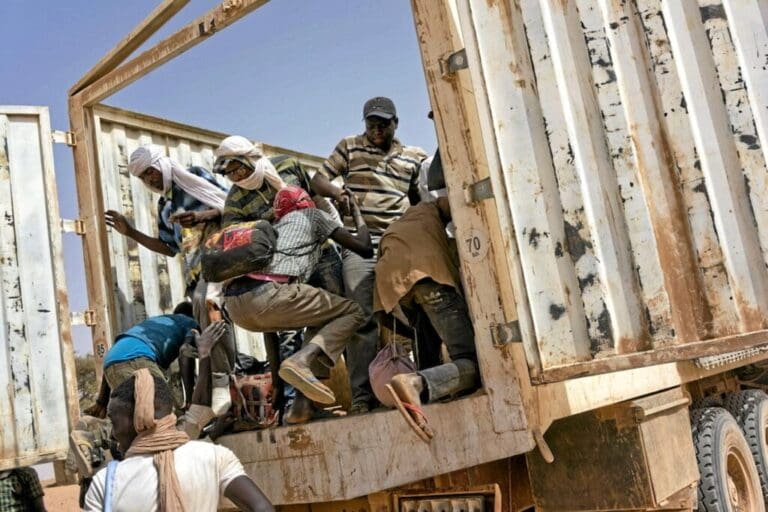In just eight months, the Algerian regime has expelled 20,000 migrants in dire conditions.
In total, more than 31,000 have been expelled to Niger in 2024.
The number of expulsions of irregular migrants by Algeria in 2024 has reached an alarming figure, sparking international outcry and growing condemnation of the methods used by the regime. According to recent
data published by the Nigerien NGO Alarme Phone Sahara, no fewer than 31,404 migrants, mainly sub-Saharan, have been returned to Niger this year, setting a tragic record.
Algeria’s migration policy, which has been increasingly criticised, is characterised by brutal expulsions, often marked by physical and psychological violence against migrants, particularly women and children.
In a report published on Monday, the NGO Alarme Phone Sahara denounces the “deadly” and “violent” methods used by the Algerian authorities, stressing that these expulsions only worsen the already precarious situation of thousands of people.
The number of expulsions in 2024 far exceeds that of previous years.
In 2023, 26,031 expulsions were recorded, a figure that was already high, but much lower than that observed this year. Between January and August 2024, nearly 20,000 migrants were expelled, an unprecedented figure in just eight months. NGOs, as well as several media outlets, are warning of the dramatic consequences of these mass expulsions, citing situations of abandonment and rejection in increasingly inhumane conditions.
Systematic repression and unsustainable living conditions
Migrants, mainly from sub-Saharan countries, are regularly the target of violent repression. According to Moctar Dan Yaye, communications officer for the NGO Alarme Phone Sahara, the Algerian authorities organise raids on homes, workplaces, and at the Tunisian borders, with the aim of arresting and deporting these vulnerable populations.
Once captured, the migrants are often gathered in southern Algeria before being transported, in inhumane conditions, to Niger, sometimes in unsanitary trucks.
The living conditions of migrants after their expulsion are hardly better. Many find themselves in remote areas of Niger, without shelter, without resources, and often exposed to serious dangers, including disease and hunger.
For the NGO Alarme Phone Sahara, the worst-case scenario remains that of a humanitarian tragedy on a
continent-wide scale, where lives could be lost due to the hostility and indifference of the Algerian authorities.
The Algerian regime, despite calls from the international community and humanitarian organisations, seems to be continuing its deportation policy with no intention of ending it.
In April 2024, the Nigerien authorities summoned the Algerian ambassador to Niamey to express their discontent with the brutality of the expulsions. This was one of the many signals sent by neighbouring countries and international organisations, denouncing these practices contrary to human rights norms.
The United Nations has also taken a stand against this migration policy. In June 2024, it confirmed the Algerian government’s involvement in mass expulsions, displacing more than 9,000 migrants in a few weeks to Niger and thus creating a “critical humanitarian situation” in the regions concerned.
MK/Sf/ac/fss/as/APA


